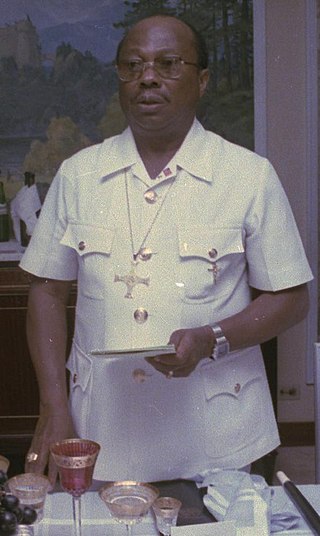
William Richard Tolbert Jr. was a Liberian politician who served as the 20th president of Liberia from 1971 until 1980.

Monrovia is the capital city of the West African country of Liberia. Founded in 1822, it is located on Cape Mesurado on the Atlantic coast and as of the 2008 census had 1,010,970 residents, home to 29% of Liberia’s total population. As the nation's primate city, Monrovia is the country's economic, financial and cultural center; its economy is primarily centered on its harbor and its role as the seat of Liberian government.
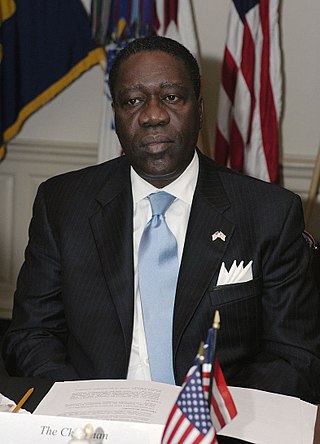
Charles Gyude Bryant was a Liberian politician and businessman. He served as the Chairman of the Transitional Government of Liberia from 14 October 2003 to 16 January 2006. The installation of the transitional government was part of the peace agreement to end the country's second civil war, which had raged since the Liberians United for Reconciliation and Democracy (LURD) rebelled against President Charles Taylor in 1999. Bryant was previously a businessman and was chosen as chairman because he was seen as politically neutral and therefore acceptable to each of the warring factions, which included LURD, the Movement for Democracy in Liberia (MODEL), and loyalists of former President Taylor. He was a prominent member of the Episcopal Church of Liberia, and was critical of the governments of Samuel Doe (1980–90) and Taylor (1997–2003).

Parkland Memorial Hospital is a public hospital in Dallas, Texas, United States. It is the main hospital of the Parkland Health & Hospital System and serves as Dallas County's public hospital. It is located within the Southwestern Medical District. The hospital is staffed by the faculty, residents, and medical students of UT Southwestern Medical Center.
Kate Clifford Larson is an American historian and Harriet Tubman scholar. Her 2003 biography of Harriet Tubman, Bound for the Promised Land was one of the first non-juvenile Tubman biographies published in six decades. Larson is the consultant for the Harriet Tubman Special Resource Study of the National Park Service and serves on the advisory board of the Historic Context on the Underground Railroad in Delaware, Underground Railroad Coalition of Delaware.

Roberts International Airport, informally also known as Robertsfield, is an international airport in the West African nation of Liberia. Located near the town of Harbel in Margibi County, the single runway airport is about 35 miles (56 km) outside of the nation's capital of Monrovia, and as an origin and destination point is referred to as "Monrovia". Locally, it is often referred to as simply "RIA." The airport is named in honor of Joseph Jenkins Roberts, the first President of Liberia.
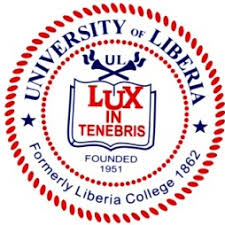
The University of Liberia is a publicly funded institution of higher learning located in Monrovia, Liberia. Authorized by the national government in 1851, the university opened in 1862 as Liberia College. UL has four campuses; including the Capitol Hill Campus in Monrovia, Fendall campus in Louisiana, outside Monrovia, the Medical School Campus in Congo Town and the Straz-Sinje Campus located in Sinje Grand Cape Mount County. The university enrolls approximately 18,000 students, and is one of the oldest institutions of higher learning in West Africa. It is accredited by the Liberian Commission on Higher Education.
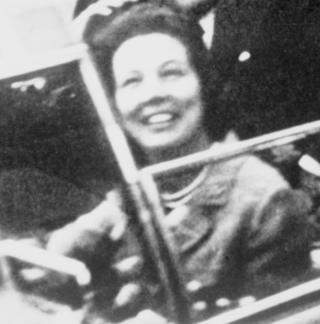
Idanell Brill Connally was the First Lady of Texas from 1963 to 1969. She was the wife of John Connally, who served as Governor of Texas and later as Secretary of the Treasury.

Cuttington University is a private university in Suacoco, Liberia. Founded in 1889 as Cuttington College by the Episcopal Church of the United States (ECUSA), it is the oldest private, coeducational, four-year, degree-granting institution in sub-Saharan Africa.
The Antoinette Tubman Stadium is a multi-purpose stadium located in Monrovia, Liberia. It is used mostly for football matches although it has also been used for music concerts, major church events, political rallies and Ebola treatment. It has a capacity of 10,000 spectators and is the oldest stadium in Liberia.

Liberia – United States relations are bilateral relations between Liberia and the United States.
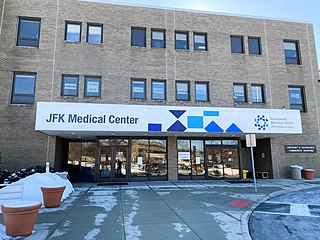
John F. Kennedy Medical Center (JFKMC), an affiliate of Hackensack Meridian Health (HMH), is a 499-bed full-service, acute care hospital, and the home of the JFK Johnson Rehabilitative Institute. It is affiliated with Hackensack Meridian School of Medicine at Seton Hall University and Robert Wood Johnson Medical School, and is located in Edison, New Jersey. In 2021 it announced an affiliation with the St. Joseph’s Wayne Medical Center, also in New Jersey.
John F. Kennedy Memorial Hospital is a Tenet Healthcare owned hospital in Indio, California, United States.

Antoinette Louise Padmore Tubman was the wife of the Liberian politician William S. Tubman and was First Lady of Liberia from 1948 until 1971.
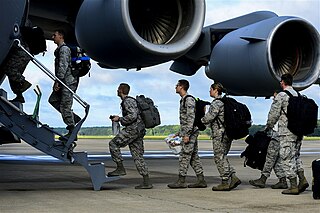
Operation United Assistance was a 2014 United States military mission to help combat the Ebola virus epidemic in West Africa, including the part of the epidemic occurring in Liberia. The 101st Airborne Division headquarters was responsible for leading the mission.
Dorothy Harriet Eugenia Musuleng Cooper was a Liberian educator, politician and the first woman to serve as Foreign Minister in Liberia. She was born at Arthington, Liberia and obtained her B.S. and M.S. from College of West Africa and San Francisco State University respectively. She worked as a school teacher between graduation and high school and matriculation in 1964 in San Francisco in 1964, curriculum development in the Ministry of Education, and principal of Cuttington University College. She was an education minister in Charles Taylor's shadow government from 1990 to 1993 in the National Patriotic Reconstruction Assembly Government

Americo-Liberian people, are a Liberian ethnic group of African American, Afro-Caribbean, and liberated African descent. The sister ethnic group of Americo-Liberians are the Sierra Leone Creole people, who share similar ancestry and related culture. Americo-Liberians trace their ancestry to free-born and formerly enslaved African Americans who emigrated in the 19th century to become the founders of the state of Liberia. They identified there as Americo-Liberians. Some African Americans following resettlement in Canada also participated as founding settlers in Sierra Leone and other Recaptive repatriates settled in present-day Côte d'Ivoire.
Robert Nelson McClelland was an American surgeon. In 1963, he worked unsuccessfully to save the life of U.S. President John F. Kennedy after he was fatally shot, and two days later, the life of Kennedy's assassin, Lee Harvey Oswald.
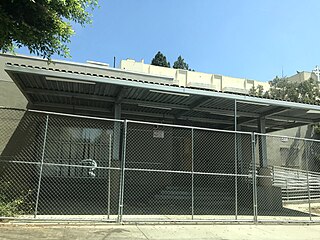
Robert F. Kennedy Medical Center is a former 274-bed hospital located in Hawthorne, California. Upon opening in 1926 as Hawthorne Community Hospital, the hospital was opened in tandem with Centinela Hospital Medical Center to serve the communities of Hawthorne, El Segundo, Lennox, and Southern Inglewood. The Hospital was renamed in honor of former US senator and then-presidential candidate Robert F. Kennedy who was assassinated by Sirhan Sirhan in Los Angeles on June 6, 1968. The Hospital was purchased by Catholic Healthcare West in 1989, and underwent numerous expansions before numerous lawsuits and budgetary issues with the hospital's parent company forced its closure in 2004.














